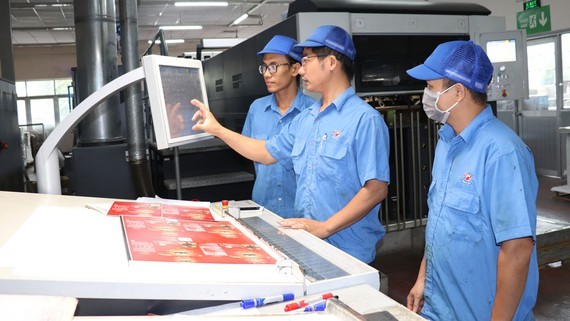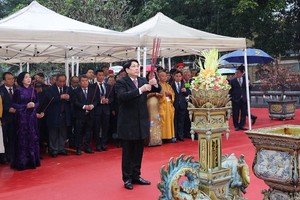
Before importing an advanced printer from Japan, the Printing No.7 JSC in HCMC based Tan Tao Industrial Park in 2017 sent two skilled employees to Japan to learn machine operation skills so they would have trained staff to operate the printer when it arrived.
Nguyen Minh Trung, director of the company, said all employees must commit to taking part in training courses with expenses paid by the company.
The company holds 6 to 8 annual laborer training courses with guest lecturers from prestigious vocational schools, as well as sends staff abroad for training and lets skilled workers train new recruits. While many others lack skilled workers, this company still has a young and highly skilled backup workforce.
The Labor Union in Thu Duc district, on the other hand, said a large number of workers were not interested in training courses that the union had held.
Meanwhile, Pouyuen Vietnam Limited in Binh Tan District organizes training courses on sewing, refrigeration, and cooking for nearly 100 workers per year, financed by their own Union and Binh Tan District Labor Confederation.
However, Chairman of the Labor Confederation said that this manufacturer is one of the many few who proactively train their employees. Compared to more than 350,000 workers in the whole district, the number of laborers receiving specialized training is like a drop in the ocean.
There are governmental policies to support companies in labor training, but most businesses are not interested since it is not practical.
One of the mandatory conditions to apply for funding is that the company is facing financial difficulties due to economic downturn or force majeure and have to change production structure. Secondly, companies can only apply for less than US$50 per worker for less than 6 months at a time.
At the same time, many manufacturers are willing to spend their own funds for high-quality labor training because they see it as their own responsibility and rights, said Nguyen Minh Trung, director of the Printing No.7 JSC.
Many business owners expressed that the quality of training at most vocational schools cannot meet their companies’ technological needs, since they only provide basic knowledge and not specialized skills.
According to Dr. Huynh Thanh Dien, an expert in the field, the large State budget for the labor training are not being used effectively. Most companies only send their staff to participate in courses that can earn them certificates.
He suggests that localities should leave labor training to businesses with real capacity in vocational training, promotion, enrollment and choice of good lecturers.
























